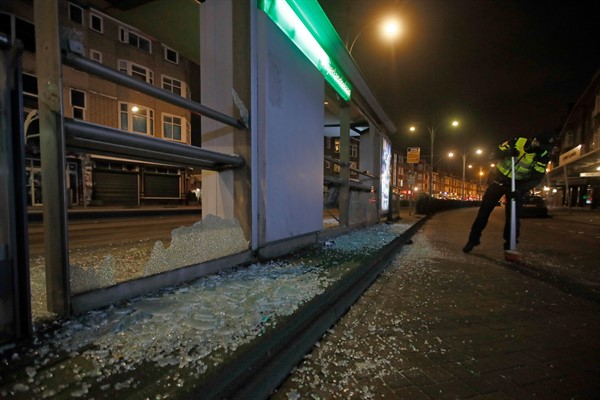When riots erupted across the Netherlands last weekend against a new coronavirus lockdown, the scenes of mayhem triggered a cascade of emotions. “My city is crying, and so am I,” said John Jorritsma, the mayor of Eindhoven, the country’s fifth-largest city, contemplating the damage from all the violence. But the sentiment was not just sadness. Furious, and perhaps a bit frightened, Jorritsma called the rioters “the scum of the Earth” and warned that the country could be “on our way to civil war.”
The protests in nearly a dozen Dutch cities erupted under the banner of rejecting stricter measures to contain the COVID-19 pandemic, including a curfew—from 9 p.m. to 4:30 a.m.—imposed by the government in an effort to protect the country from the more contagious and perhaps deadlier U.K. variant of the coronavirus. The pandemic has left more than 13,700 people dead in the Netherlands, and led to about a million confirmed infections.
A closer look at last weekend’s turmoil, however, suggests that it was triggered by something more than a spontaneous explosion of pandemic frustration. While exasperation with the extended COVID-related hardships is genuine, the violence that tore across the Netherlands is evidence that political players with their own agendas are exploiting this crisis. Right-wing politicians and, more alarmingly, extreme far-right organizations are both taking advantage of the pandemic and the Dutch government’s ongoing efforts to control the spread of the virus to disrupt the country’s democratic system, grow their ranks of supporters and hone their skills at sparking violence.

